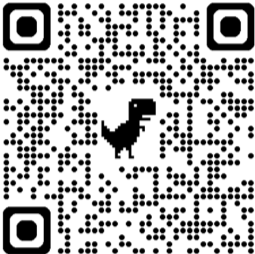Cognitive Learning Theories in a Nutshell
Use the Essentials for Working with Young Children textbook as an open book quiz to play this game that reviews common theories in the ECE field.
Create multiple-choice games on Wisc-Online and play them on our Chakalaka mobile app!
But that's not all! Explore educational games created by others. Simply search by category or enter agame code number and dive into a world of learning and fun.
Download the Chakalaka mobile app here:

Topics of this game:
- Optimal learning environments for cognitive development are ___________-______________.
- The ability for a person to learn, think and develop connections in the brain between brain cells..
- Environments where children are read to, sung to, talked to, and exposed to environmental print. various
- Young children's brains are ___________?
- Young children are ________ _____________?
- Center of the brain cell.
- What kind of relationships should teachers give children?
- Children should have opportunities to explore using their _________?
- Piaget's stage of motor development where children explore and learn about their world through movement and their senses.
- Piaget's stage of development where children begin to think symbolically through play.y
- Piaget's stage of development where children can reason logically about concrete objects or events.
- Piaget's stage of development where children can think abstractly and explore ideas.
- A person's idea of how the world works or what is right about the world based on what they have learned so far.
- Being exposed to new experiences and absorbing them.
- A person altering their current schema or ideas about the world based on new knowledge.
- When our brain works to make sense of the new knowledge.
- Understanding the amount of something does not change based on the shape or form it takes.
- Vygotsky's Theory of Cognitive Development
- Supporting a child when they learn a new skill through social interaction, modeling and relating to the child's cultural interests.
- A philosophy and method of working with young children based on the work of Maria Montessori.
- A type of Montessori lesson in 3- steps inspired by the work of Vygotsky.y
- What the Montessori Method refers to Free Choice time.
- Periods in a child's life where they are most focused on learning a new skill, according to Montessori.
- The people and places in a child's life who are most influential.
- The person in the center of Bronfenbrenner's Ecological Systems Theory.
- The relationship between the people within the child's Microsystem..
- Situations, places, people who do not always play a direct role in influencing the child, but whose decisions could influence the child.
- The community, culture and social norms in which the child lives.
- According to Maslow, these needs include food, water, shelter and rest.
- Abraham Maslow's Theory of Self- Actualization.
- Achieving one's full potential.
- How many intelligences did Howard Gardner propose so far?
- Learning through the body and hands.
- Understanding yourself.
- Understanding others.
- Understanding objects in space around yourself, on paper, etc.
- Understanding living things and nature.
- Play where children explore their surroundings between ages 0-2.
- Play where children begin planning and creating, using toys and materials.
- Play where children begin to involve others in their dramatic play activities.
- The type of game where children are concerned about the different roles they will play.
User comments are currently unavailable. We apologize for the inconvenience and are working to restore this feature as soon as possible.

